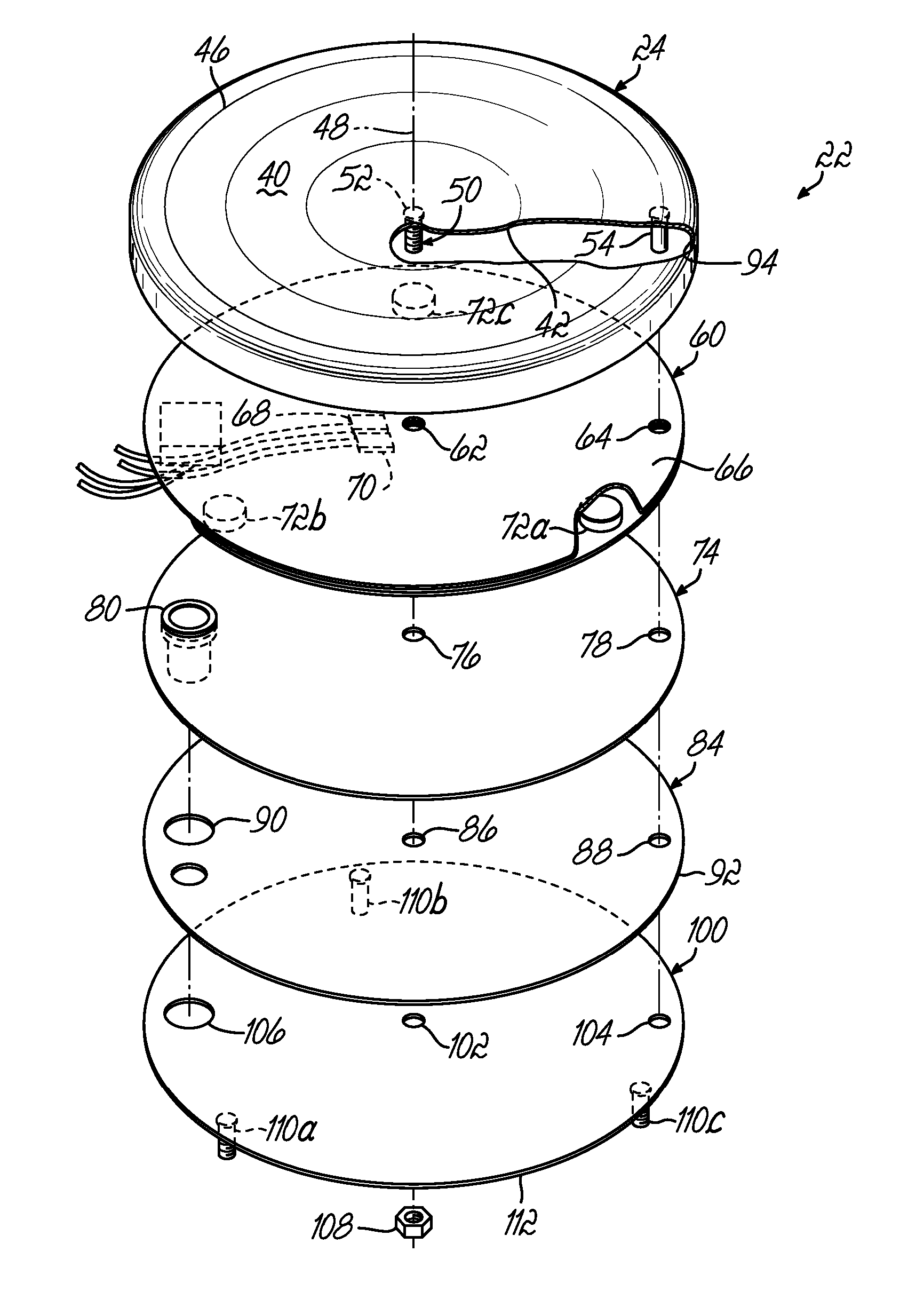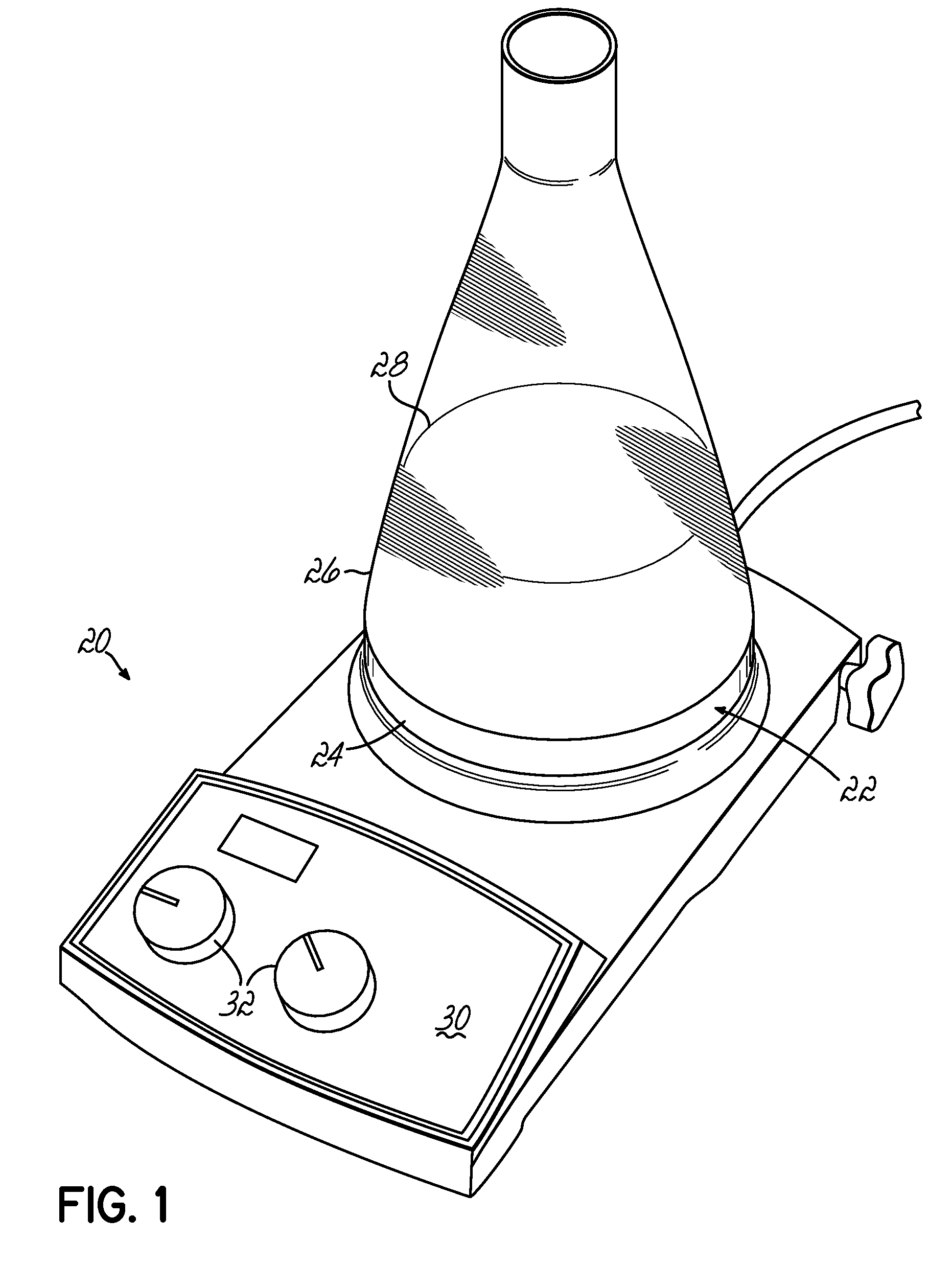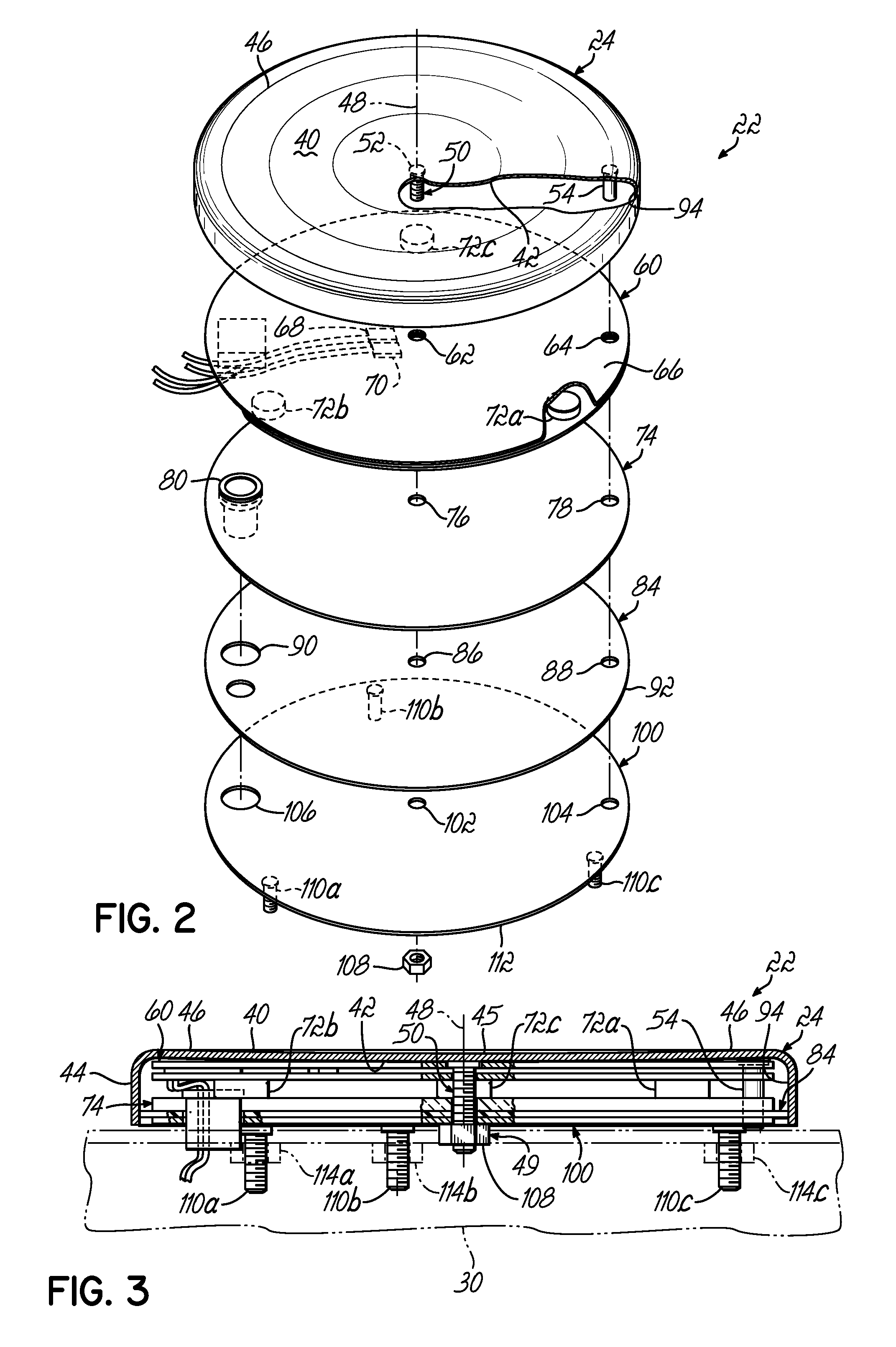Hot plate with stainless steel top
a technology of stainless steel and hot plate, applied in the field of hot plate, can solve the problems of glass breaking, corrosion and/or oxidation of copper, iron and aluminum, and may not be commercially practical for less expensive hot plate, and achieve the effects of reducing the tendency of a vessel being heated to move, reducing buckling and crowning, and efficient heating cycl
- Summary
- Abstract
- Description
- Claims
- Application Information
AI Technical Summary
Benefits of technology
Problems solved by technology
Method used
Image
Examples
Embodiment Construction
[0018] Referring to FIG. 1, a stirring hot plate 20 includes a heating plate assembly or unit 22 having a stainless steel top plate 24 for supporting a vessel 26 containing a substance 28 to be heated and / or stirred. The heating plate unit 22 is supported by a base unit 30, and often, the base unit 30 provides three points of support for the heating plate unit 22. The base unit 30 provides user operable I / O (input / output) devices 32 that, in a known manner, provide input data and commands to analog or digital controls (not shown) inside the base unit 30, which are operable to control an electric heating element. The base unit 30 may also, in a known manner, house a magnetic stirring device and associated user I / O devices, which are operable to provide a rotating magnetic field above the top plate unit 22, thereby rotating a magnetic stirring rod inside the vessel 26.
[0019] Referring to FIG. 2, the top plate 24 of the heating top plate assembly 22 is made of a stainless steel materi...
PUM
 Login to View More
Login to View More Abstract
Description
Claims
Application Information
 Login to View More
Login to View More - R&D
- Intellectual Property
- Life Sciences
- Materials
- Tech Scout
- Unparalleled Data Quality
- Higher Quality Content
- 60% Fewer Hallucinations
Browse by: Latest US Patents, China's latest patents, Technical Efficacy Thesaurus, Application Domain, Technology Topic, Popular Technical Reports.
© 2025 PatSnap. All rights reserved.Legal|Privacy policy|Modern Slavery Act Transparency Statement|Sitemap|About US| Contact US: help@patsnap.com



